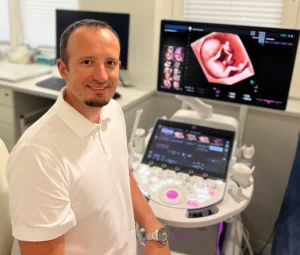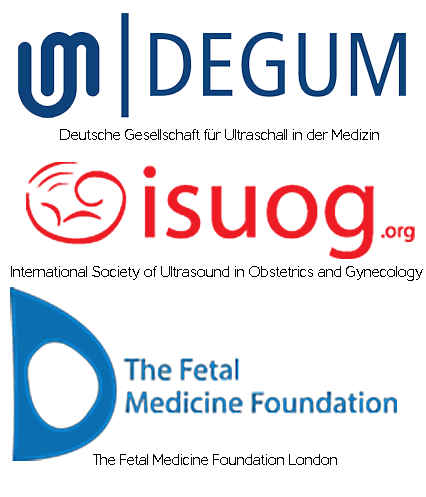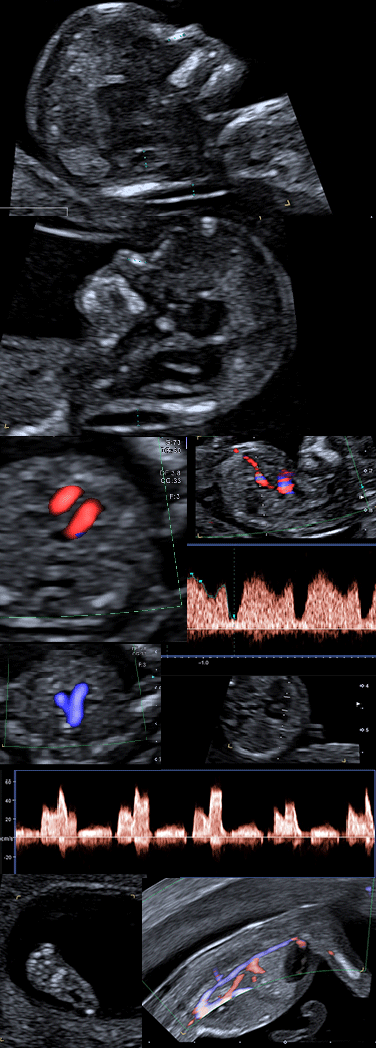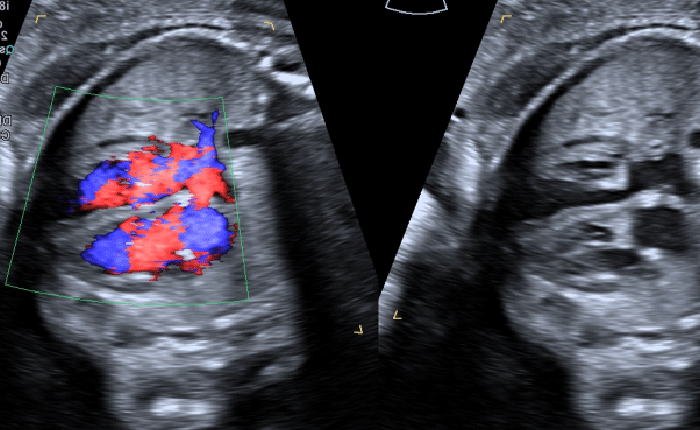
Genetic prenatal diagnostics refers to the examination of the genetic material of an embryo or fetus during pregnancy in order to detect possible genetic abnormalities or diseases.
Invasive prenatal diagnostics is a method in which samples are taken from the womb to examine the genetic material of the fetus. Invasive methods include chorionic villus sampling (removal of tissue from the placenta) and amniocentesis (removal of amniotic fluid from the 15th week of pregnancy). These tests provide detailed genetic information, but may be associated with a small risk of complications such as miscarriage. With our extensive experience after numerous diagnostic and therapeutic punctures, we can minimize the risk. We regularly carry out all common invasive outpatient procedures (chorionic villus sampling and amniocentesis) in Hamburg.
The amniotic fluid sample taken is then analyzed in the laboratory for various parameters, depending on the questions being asked. These include genetic examinations for chromosome defects or genetic defects, tests for infections or examinations of the unborn child’s lung maturity.
There are different types of genetic tests that can be carried out on amniotic fluid. These include:
Karyotyping: This test examines the number and structure of the chromosomes in the amniotic fluid. It can detect chromosomal abnormalities such as Down’s syndrome (trisomy 21), Edwards’ syndrome (trisomy 18) or Pätau’s syndrome (trisomy 13).
Polymerase chain reaction (PCR): This method is used to search for specific genetic mutations or hereditary diseases. For example, it can be used to diagnose cystic fibrosis, sickle cell disease or thalassemia.
Fluorescence in situ hybridization (FISH): This test can detect chromosomal abnormalities such as Turner syndrome (monosomy X) or Klinefelter syndrome (XXY). It can also be used for certain genetic diseases such as Prader-Willi syndrome or Angelman syndrome.
Array-CGH (Comparative Genomic Hybridization): This method analyzes the entire genome and can detect both numerical and structural chromosomal changes. It can detect very small genome copy number variations as well as microdeletions or duplications.
Genetic syndromes: Whole exome sequencing can help identify genetic syndromes in which multiple body structures or organs are affected, such as Noonan syndrome or Ehlers-Danlos syndrome.
Rare genetic diseases: Whole exome sequencing is often used for people with unclear or rare genetic diseases where other diagnostic methods have been unable to identify a clear cause.
The interpretation of the results often requires additional clinical data and genetic counseling.
In addition to competent and comprehensive advice and treatment, we attach great importance to customized, individual medicine.
Are you looking for modern genetic diagnostics in Hamburg? Then you have found the right address! If you have any further questions, Dr. Czugalinski will be happy to help you.
We look forward to seeing you!

Dr.med. Maciej P. Czugalinski
Specialist in gynecology and obstetrics
Special obstetrics and perinatology
Ultrasound expert DEGUM level II
FMF London Specialist
more
All ultrasound examinations in the field of prenatal diagnostics are certified according to the criteria of the following organizations:
















